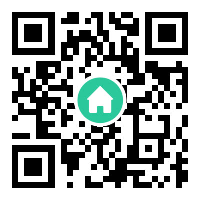The Rise of Telegram Groups in Modern Communication
In recent years, Telegram groups have emerged as a cornerstone of digital communication, offering users a versatile platform for collaboration, community-building, and information sharing. Unlike traditional social media platforms, Telegram’s emphasis on privacy, scalability, and customizable features has made it a preferred choice for millions worldwide. From hobbyist communities to professional networks, Telegram groups serve as dynamic spaces where ideas flow freely, unencumbered by algorithmic interference or data monetization. This article explores the multifaceted role of Telegram groups, their advantages, challenges, and their growing influence across diverse sectors.
Privacy and Security: A Core Appeal
One of the defining features of Telegram groups is their commitment to user privacy. End-to-end encryption in secret chats, self-destructing messages, and the ability to create anonymous accounts attract individuals and organizations prioritizing confidentiality. For instance, activists and journalists often rely on Telegram groups to coordinate efforts without fear of surveillance. Additionally, admins can control membership through invite links or approval systems, reducing the risk of spam or malicious actors. This security-first approach distinguishes Telegram from platforms like Facebook or WhatsApp, where data privacy concerns persist.
Scalability and Functionality
Telegram groups support up to 200,000 members, a stark contrast to WhatsApp’s 1,024-member limit. This scalability makes them ideal for large-scale communities, such as fan clubs, educational forums, or corporate announcements. Features like pinned messages, polls, bots, and file-sharing capabilities (up to 2GB per file) enhance functionality. For example, educators use Telegram groups to distribute course materials, while businesses automate customer service via chatbots. The platform’s API also allows developers to create tailored solutions, further expanding its utility.
Niche Communities and Global Reach
The flexibility of Telegram groups has fostered the growth of hyper-specific communities. Whether centered around cryptocurrency trading, rare book collections, or language exchange, these groups thrive on shared interests. Geographic boundaries dissolve as members from different time zones engage in real-time discussions. During crises, such as natural disasters or political unrest, Telegram groups become lifelines for disseminating urgent information. Their global reach and immediacy empower users to mobilize support, share resources, or amplify voices on critical issues.
Challenges and Controversies
Despite their benefits, Telegram groups face scrutiny. The same privacy features that protect users can also shield illicit activities. Reports of groups promoting misinformation, hate speech, or illegal trade have raised concerns. Telegram’s decentralized moderation—relying on user reports rather than proactive oversight—creates loopholes. Furthermore, the lack of monetization tools within groups forces admins to seek external funding, complicating sustainability. Balancing free expression with accountability remains an ongoing challenge for the platform.
The Future of Telegram Groups
As digital communication evolves, Telegram groups are poised to play an even greater role. Integration with Web3 technologies, such as blockchain-based verification or NFT communities, could redefine engagement. Enhanced moderation tools and AI-driven content filters may address existing challenges. Meanwhile, the rise of remote work and decentralized organizations will likely fuel demand for secure, scalable group platforms. By continuing to innovate while upholding its privacy ethos, Telegram can solidify its position as a leader in the future of online interaction.

Conclusion
Telegram groups represent more than just a communication tool; they are microcosms of global collaboration and cultural exchange. Their blend of privacy, flexibility, and functionality addresses gaps left by mainstream platforms, making them indispensable for diverse audiences. However, navigating the complexities of moderation and ethical use will determine their long-term viability. As technology advances, Telegram groups will undoubtedly continue to shape how we connect, learn, and advocate in an increasingly interconnected world.












